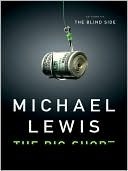More on this book
Community
Kindle Notes & Highlights
Read between
January 10 - January 17, 2021
The most difficult subjects can be explained to the most slow-witted man if he has not formed any idea of them already; but the simplest thing cannot be made clear to the most intelligent man if he is firmly persuaded that he knows already, without a shadow of doubt, what is laid before him. —Leo Tolstoy, 1897
It’s not easy to stand apart from mass hysteria
How do you make poor people feel wealthy when wages are stagnant? You give them cheap loans.
he asked the salesman, “I appreciate this, but I just want to know one thing: How are you going to fuck me?”
“Steve’s fun to take to any Wall Street meeting,” said Vinny. “Because he’ll say ‘explain that to me’ thirty different times. Or ‘could you explain that more, in English?’ Because once you do that, there’s a few things you learn. For a start, you figure out if they even know what they’re talking about. And a lot of times they don’t!”
To succeed in a spectacular fashion you had to be spectacularly unusual.
He gave a talk in which he argued that the way they measured risk was completely idiotic. They measured risk by volatility: how much a stock or bond happened to have jumped around in the past few years. Real risk was not volatility; real risk was stupid investment decisions.
If you wanted to predict how people would behave, Munger said, you only had to look at their incentives.
Munger. “I think I’ve been in the top five percent of my age cohort all my life in understanding the power of incentives, and all my life I’ve underestimated it.
Once you became an idea’s defender you had a harder time changing your mind about it.
The CDO was, in effect, a credit laundering service for the residents of Lower Middle Class America. For Wall Street it was a machine that turned lead into gold.
The closer you were to the market, the harder it was to perceive its folly.
Charlie Ledley—curiously uncertain Charlie Ledley—was odd in his belief that the best way to make money on Wall Street was to seek out whatever it was that Wall Street believed was least likely to happen, and bet on its happening.
Jamie Mai was tall and strikingly handsome and so, almost by definition, had the air of a man in charge—until he opened his mouth and betrayed his lack of confidence in everything from tomorrow’s sunrise to the future of the human race.
Both sensed that people, and by extension markets, had difficulty attaching the appropriate probabilities to highly improbable events.
Financial options were systematically mispriced. The market often underestimated the likelihood of extreme moves in prices. The options market also tended to presuppose that the distant future would look more like the present than it usually did. Finally, the price of an option was a function of the volatility of the underlying stock or currency or commodity, and the options market tended to rely on the recent past to determine how volatile a stock or currency or commodity might be.
“We always looked for someone to explain to us why we didn’t know what we were doing,”
said Ben. “We were trying to meet people. Charlie would sneak up on whoever was at the podium after speeches. We were trying to find people who could tell us why we were wrong.” They were looking for some persuasive mirror image of themselves. Someone who could tell them why what the market deemed impossible was at least improbable.
That was the reason the casino bothered to list the wheel’s most recent spins: to help gamblers to delude themselves. To give people the false confidence they needed to lay their chips on a roulette table.
These people believed that the collapse of the subprime mortgage market was unlikely precisely because it would be such a catastrophe. Nothing so terrible could ever actually happen.
“Who takes out a home loan and doesn’t make the first payment?” asked Danny Moses, putting the matter one way. “Who the fuck lends money to people who can’t make the first payment?” asked Eisman, putting it another.
Vinny, always darker, said, “There were more morons than crooks, but the crooks were higher up.”
What are the odds that people will make smart decisions about money if they don’t need to make smart decisions—if they can get rich making dumb decisions? The incentives on Wall Street were all wrong; they’re still all wrong.
The problem wasn’t that Lehman Brothers had been allowed to fail. The problem was that Lehman Brothers had been allowed to succeed.
In Eisman’s view, the unwillingness of the U.S. government to allow the bankers to fail was less a solution than a symptom of a still deeply dysfunctional financial system.


